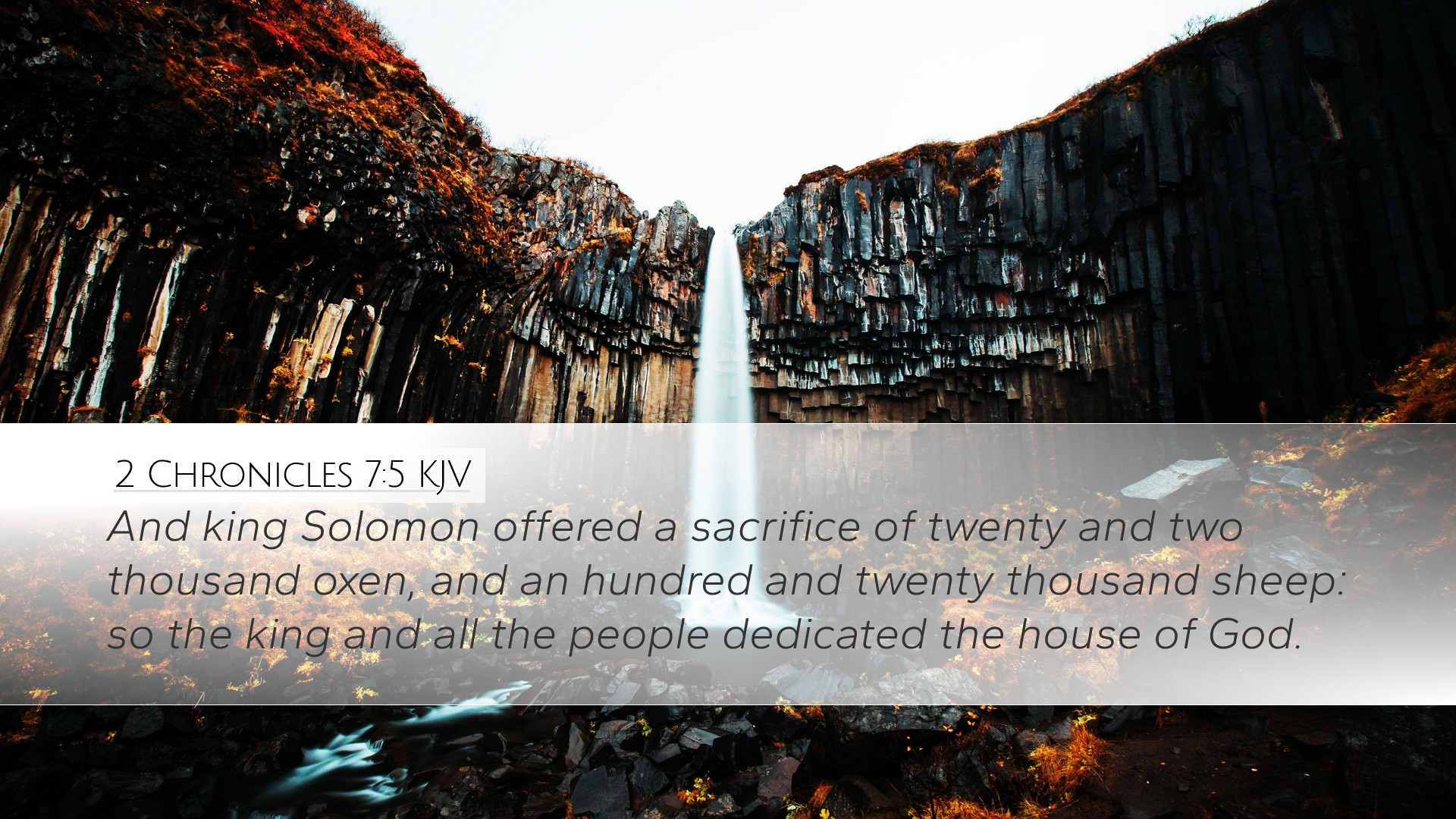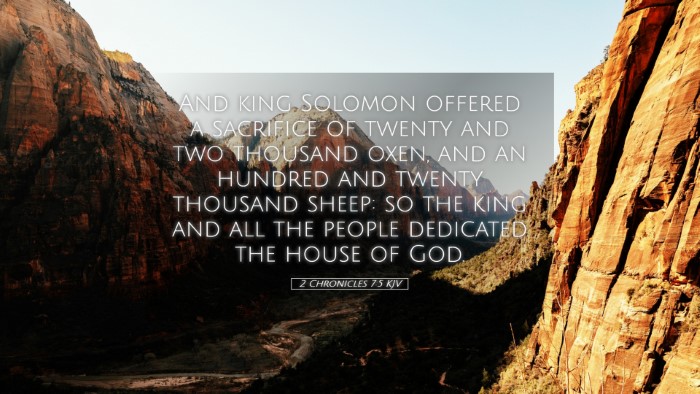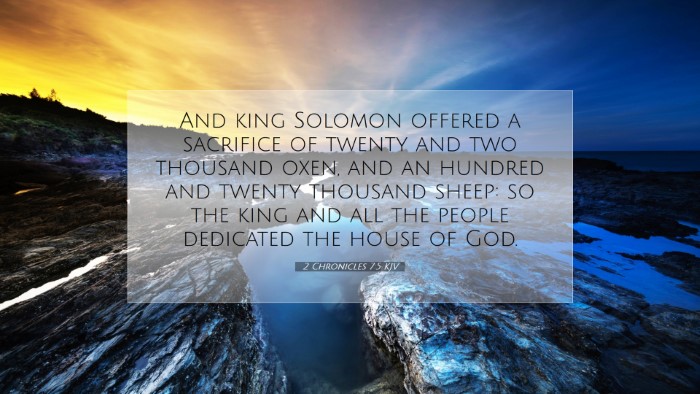Bible Commentary on 2 Chronicles 7:5
Verse: "And King Solomon offered a sacrifice of twenty and two thousand oxen, and an hundred and twenty thousand sheep: so the king and all the people dedicated the house of God."
Introduction
This verse encapsulates a momentous occasion in the history of Israel, wherein King Solomon carries out a grand act of worship in dedicating the temple to the Lord. The sheer scale of the offerings emphasizes the significance of this event. In this commentary, we shall explore the theological implications, historical context, and practical applications derived from this verse, utilizing insights from various public domain commentaries.
Historical Context
According to Matthew Henry, the dedication of the temple marked a pivotal moment for the nation of Israel. Solomon had completed a monumental architectural project — the temple, which reflected God’s presence among His people. The act of the dedication signifies not only the completion of the temple but also represents the covenant relationship between God and Israel.
The Significance of Offerings
In the Old Testament, sacrifices were integral to worship. Albert Barnes observes that the magnitude of Solomon’s offerings—22,000 oxen and 120,000 sheep—was unprecedented and demonstrated a deep reverence towards God. This act of worship was not only an expression of gratitude but also involved communal participation, indicating that the entire nation was united in reverence to God.
Theological Implications
From a theological standpoint, this verse offers rich insights into the nature of worship. Adam Clarke notes that the amazing number of sacrifices reflects God’s supremacy and holiness. It serves as a reminder of God’s greatness and the importance of honoring Him with our best offerings. Clarke also draws attention to the practice of offering in the Old Testament, highlighting its instructional role in teaching the Israelites about the seriousness and importance of approaching God.
Worship as Dedication
The act of dedicating the temple resonates with the broader Biblical theme of dedication. The temple was not merely a physical structure but a symbol of God’s habitation among His people. The offerings signify an acknowledgment that the temple, and indeed the people of Israel, belonged to God. Henry emphasizes that this should guide how believers today view their places of worship and their own lives—dedicated to God’s service.
Community and Worship
The text notes that not only Solomon but also "all the people dedicated the house of God." This indicates that worship is not an isolated act but a communal experience. In the context of modern worship, Barnes suggests that this collective act of dedication serves as an inspiration for congregational worship. The importance of community can be further emphasized, showcasing that believers are called to worship together, fostering unity in their faith.
Practical Applications for Ministry
For pastors and leaders in the church, this verse offers several practical applications:
- The Importance of Preparation: Just as Solomon prepared to dedicate the temple, leaders should prepare spiritually and materially for significant moments in their community.
- Inclusivity in Worship: Encourage congregational involvement in worship, mirroring the unity demonstrated during the temple dedication.
- Offerings Reflect Sacrifice: Inspire the congregation to view their offerings, not merely as financial contributions, but as sacrifices that reflect their dedication to God.
Conclusion
The dedication of the temple as recorded in 2 Chronicles 7:5 serves as a profound illustration of worship that encompasses sacrifice, community, and a shared commitment to God. Through the insights gained from public domain commentaries, scholars and theologians can appreciate the depth and richness of this event, applying these lessons to contemporary ministry and personal faith. Ultimately, this passage calls believers to dedicate their lives and spaces to God, acknowledging His greatness and committing to His service.


